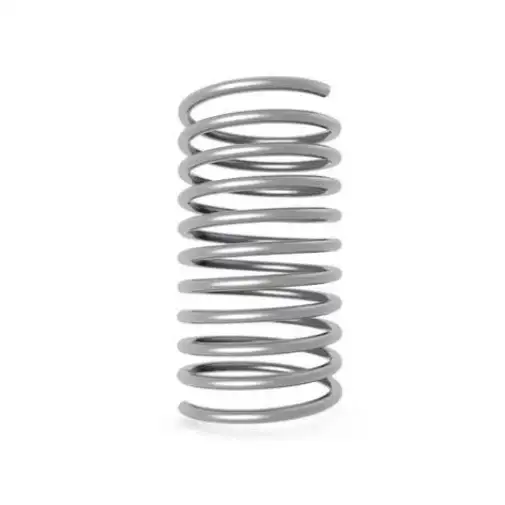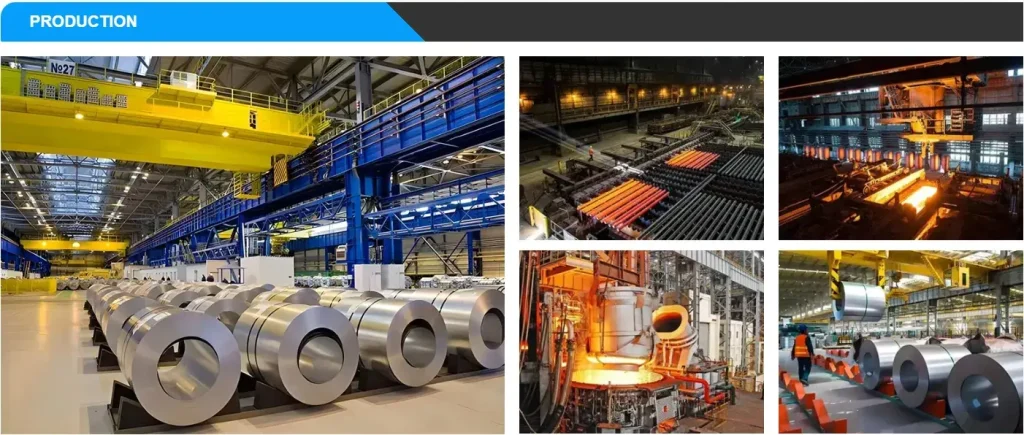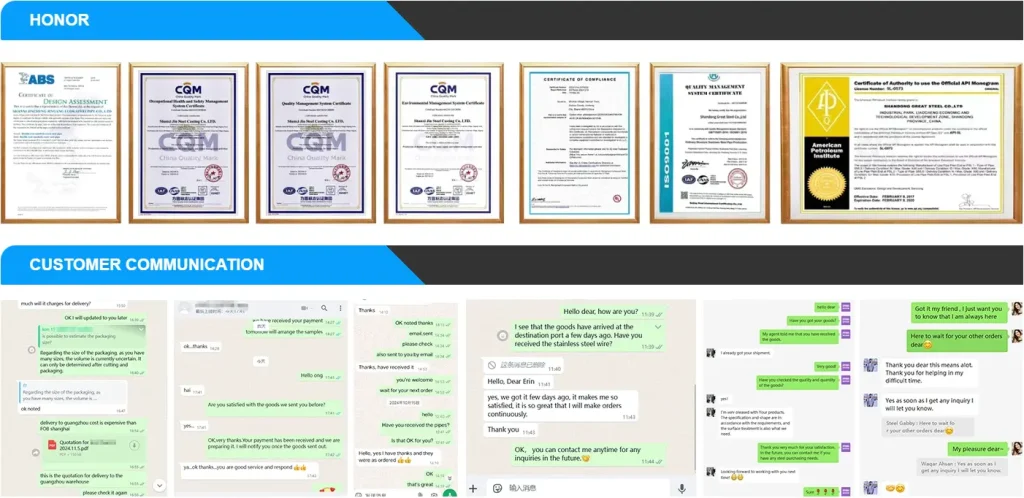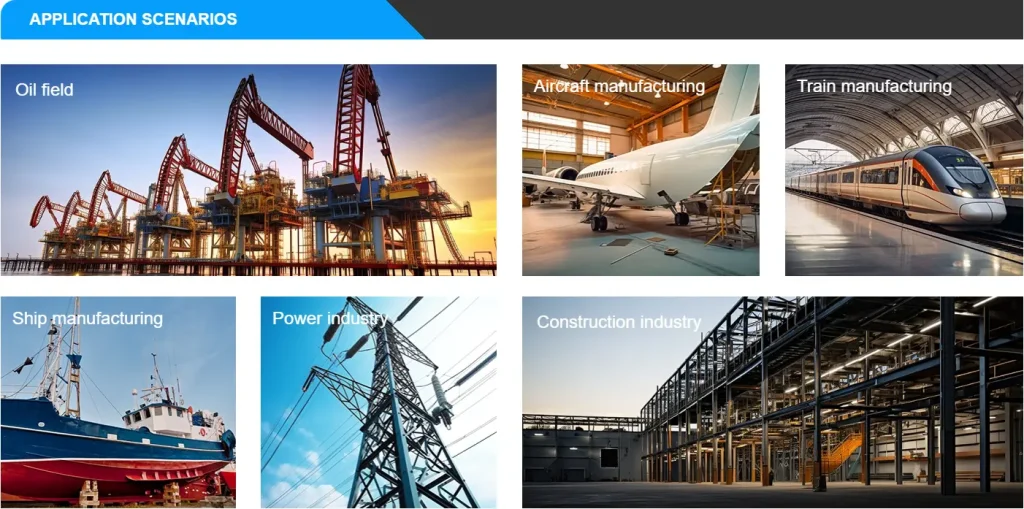We at Luokaiwei have tailored carbon-alloy spring solutions that combine decades of metallurgical expertise with lean manufacturing to meet the most demanding requirements. Our carbon-alloy springs deliver exceptional fatigue life, high yield strength, rapid turnaround on custom orders, and direct-from-factory pricing that undercuts conventional supply channels by up to 20%.
We deliver custom carbon-alloy springs that balance high strength, fatigue resistance, and cost efficiency. With in-house engineering, ISO 9001 certification, and direct factory pricing, Luokaiwei outperforms typical distributors on quality, lead time, and unit cost.
About Luokaiwei
We are a China-based OEM with 15 years of spring-making heritage. Our 100 000 m² campus houses 200+ CNC coilers, presses, and heat-treatment furnaces. By selling factory direct, we eliminate middle-man markups and guarantee rapid stock-item delivery—often in under 7 days. Custom runs ship in 10–15 working days.
Defining Carbon-Alloy Springs
Carbon-alloy springs are made from carbon or low-alloy steels engineered for elastic energy storage. Compared with stainless or nickel alloys, carbon-alloy grades offer superior cost-to-performance ratios in moderate environments. They include both high-carbon, oil-tempered “music-wire” steels and chrome-vanadium or chrome-silicon alloys for dynamic loads.
Key Steel Grades and Material Selection
- ASTM A227 (Hard-Drawn Wire): Economical, general-purpose springs.
- ASTM A228 (Music Wire): High tensile strength and repeatable fatigue life.
- ASTM A229 (Oil-Tempered): Enhanced fatigue resistance under dynamic load.
- ASTM A231 (Chrome-Vanadium): Suitable up to 230 °C for engine-valve springs.
- ASTM A401 (Chrome-Silicon): High fatigue life in rigorous conditions.
We source certified steel from Tier 1 mills and maintain a traceability system from coil sheet to finished spring.
Engineering and Design Workflow
- Requirements Gathering: We begin with load-deflection, cycle life, space constraints, and environmental conditions.
- FEA Simulation: Our in-house software predicts stress distributions and natural frequencies.
- Prototype Production: Rapid prototyping via CNC winding on sample runs.
- Validation Testing: We conduct fatigue tests per ASTM F116 and dynamic deflection cycles.
- Production Release: After sign-off, parts flow through a dedicated lean cell.
Coil Forming and Manufacturing Techniques
We employ:
- CNC Winding: Precision coiling to ±0.05 mm.
- Cold Heading: For integrated end-forms on torsion springs.
- Grinding: Flat ends ground to tight perpendicularity.
- Coiling Presses: For heavy-duty wire up to 10 mm diameter.
Heat Treatment and Mechanical Properties
Our ovens perform multi-stage processing:
- Stress Relief Annealing: Reduces residual stresses.
- Quenching & Tempering: Achieves desired hardness range (HRC 38–54).
- Cryogenic Treatment (Optional): Improves long-term fatigue life.
Surface Finishes and Corrosion Protection
Standard finishes include:
- Phosphate Coating: For paint adhesion.
- Zinc Electroplating: 5–25 µm layer with passivation.
- Shot Peening: Induces compressive surface stress to extend life.
- Black Oxide or Powder Coat: Up to customer’s spec.
Quality Assurance and Industry Standards
Our QA lab is ISO 17025 accredited. We administer:
- Dimensional Inspection: CMM and optical comparators.
- Load-Deflection Testing: Per DIN 2095.
- Salt Spray Testing: Per ASTM B117 for plated springs.
- Fatigue Life Testing: Up to 10 million cycles under dynamic load.
Typical Applications and Performance Requirements
Carbon-alloy springs are found in:
- Automotive Suspensions & Valves (load, resilience)
- Industrial Valves & Actuators (wear resistance)
- Oil & Gas Instrumentation (temperature and corrosion)
- Aerospace Landing Gear (fatigue-critical)
- Consumer Electronics (precision flat springs)
Customization Capabilities and Lead Times
- Wire Diameter: 0.3 mm–10 mm
- Free Length: up to 500 mm
- Batch Sizes: 50–500 000 pcs
- Lead Time: Stock sizes in 7 days; custom in 10–15 days.
We support fully bespoke end-forms, integrated tabs, and assembly services.
Global Price Comparison
| Region | Material Cost (USD/kg) | Processing Cost (USD/pc) | Typical Unit Price (USD) | Lead Time (days) |
|---|---|---|---|---|
| China (Luokaiwei) | 2.50 – 3.00 | 0.05 – 0.15 | 0.30 – 2.50 | 7 (stock) / 12 (custom) |
| India | 3.00 – 3.50 | 0.10 – 0.20 | 0.40 – 3.00 | 14 – 20 |
| USA | 4.50 – 5.50 | 0.25 – 0.40 | 1.00 – 5.00 | 10 – 15 |
| Germany | 5.00 – 6.00 | 0.30 – 0.50 | 1.20 – 6.00 | 12 – 18 |
Environmental Responsibility and Sustainability
We implement:
- Waste-water Recycling: Closed-loop rinse systems for plating.
- Energy Recovery: Heat from furnaces re-used for plant heating.
- RoHS Compliance: No lead or cadmium in spring coatings.
- ISO 14001 Audited: Continuous improvement in environmental metrics.
Case Study: Automotive Valve Springs
A tier-1 OEM required valve springs for a turbocharged engine rated at 8 000 rpm. We proposed A231 chrome-vanadium, shot-peened at 12 bar, resulting in a 1.8× increase in cycle life versus baseline. Production of 200 000 pcs completed in 11 days, with zero field failures over 100 000 km.
FAQs
Q1: What is the maximum operating temperature for carbon-alloy springs?
Up to 230 °C for chrome-vanadium (ASTM A231); beyond, consider nickel alloys.
Q2: How do I specify spring rate and travel?
Provide force at given deflection or slope of F–δ curve; our engineers can assist with calculations.
Q3: Can you handle prototypes before large runs?
Yes. We offer small pilot runs (min. 50 pcs) for fit, feel, and function checks.
Q4: What certifications do you hold?
ISO 9001:2015, IATF 16949 (automotive), ISO 14001, ISO 17025 (lab).
Q5: How do you ensure lead-time reliability?
Dedicated production cells, real-time MES tracking, and buffer stock of key wire grades.







